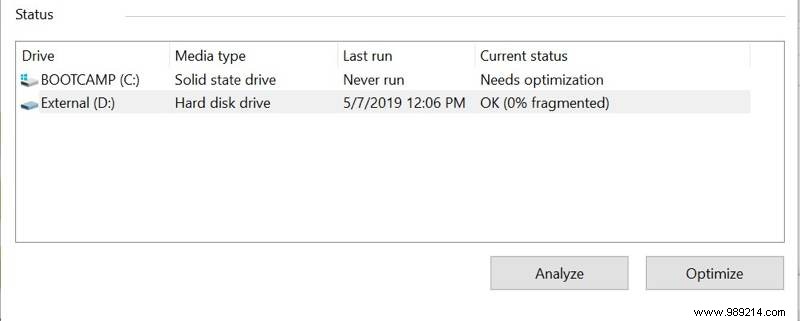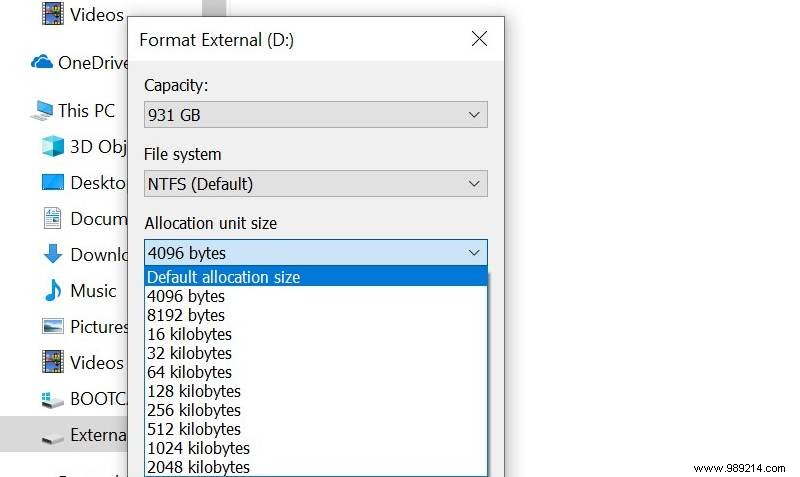There are several answers to the above questions, both simple and not so simple. The two-word answer for one might be "it depends".
Depending on who you talk to, allocation unit size may also be referred to as "cluster size". Either way, it's pretty simple. This is the smallest possible piece of data on your disk.

In most cases, Microsoft recommends an allocation unit size of 4 KB. This is what the company says works best for "standard users." If you need a size other than the default, you probably already know that and why you need it.
As mentioned above, fragmentation does not present the same problems on an SSD as it does on an HDD. For this reason, you can theoretically use larger allocation unit sizes without affecting performance. Would that actually speed things up?
The answer is probably no. So far, there haven't been any concrete examples of larger allocation unit sizes causing performance changes on SSDs. Larger unit sizes can result in more writes over time, which would cause more wear and tear on your SSD.

Some of the examples we've already seen with standard hard drives also apply here. Games and other applications that frequently read and write very small files (less than 4 KB) could benefit from a smaller cluster size. Even so, you're unlikely to see a measurable difference in performance.
As you've probably noticed, you're generally safe with the default allocation unit size. Unless you're preparing a computer for a very specific use case, it's not even something you should spend a lot of time thinking about. There are always exceptions, but that's usually the rule.
If you're worried about wearing out your SSD early, that won't have much to do with it. Instead, take a look at our list of things you shouldn't do with SSDs.